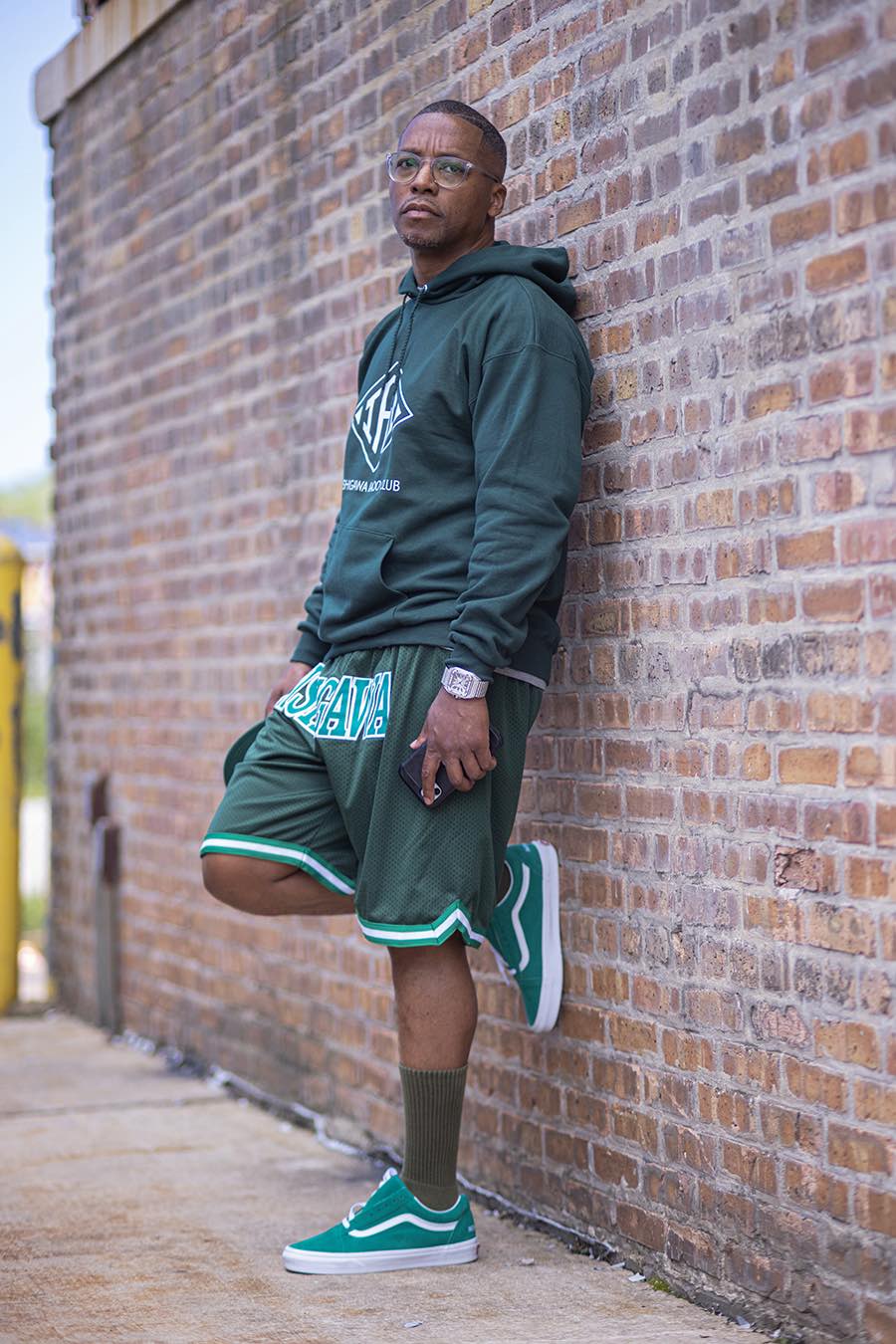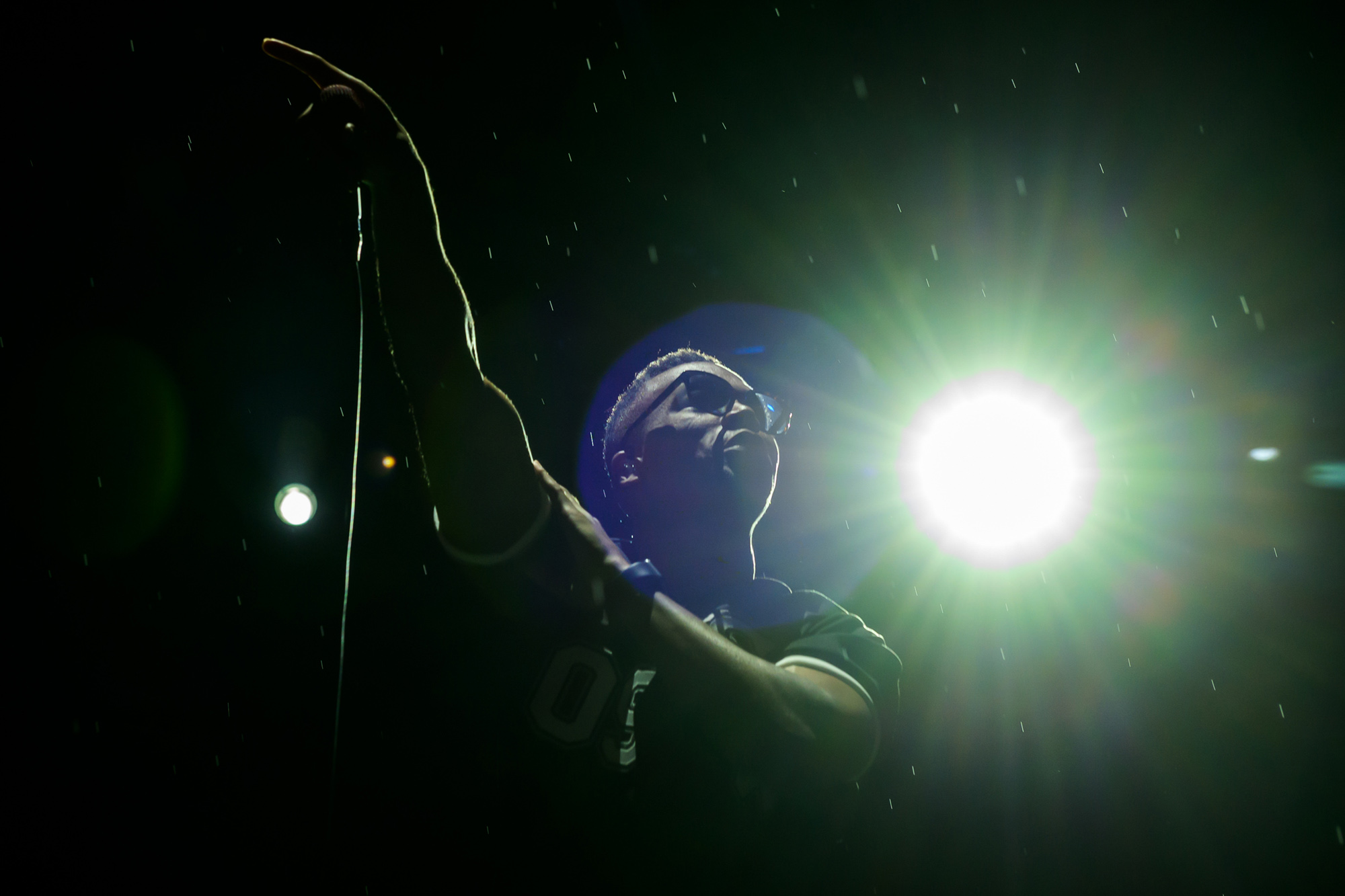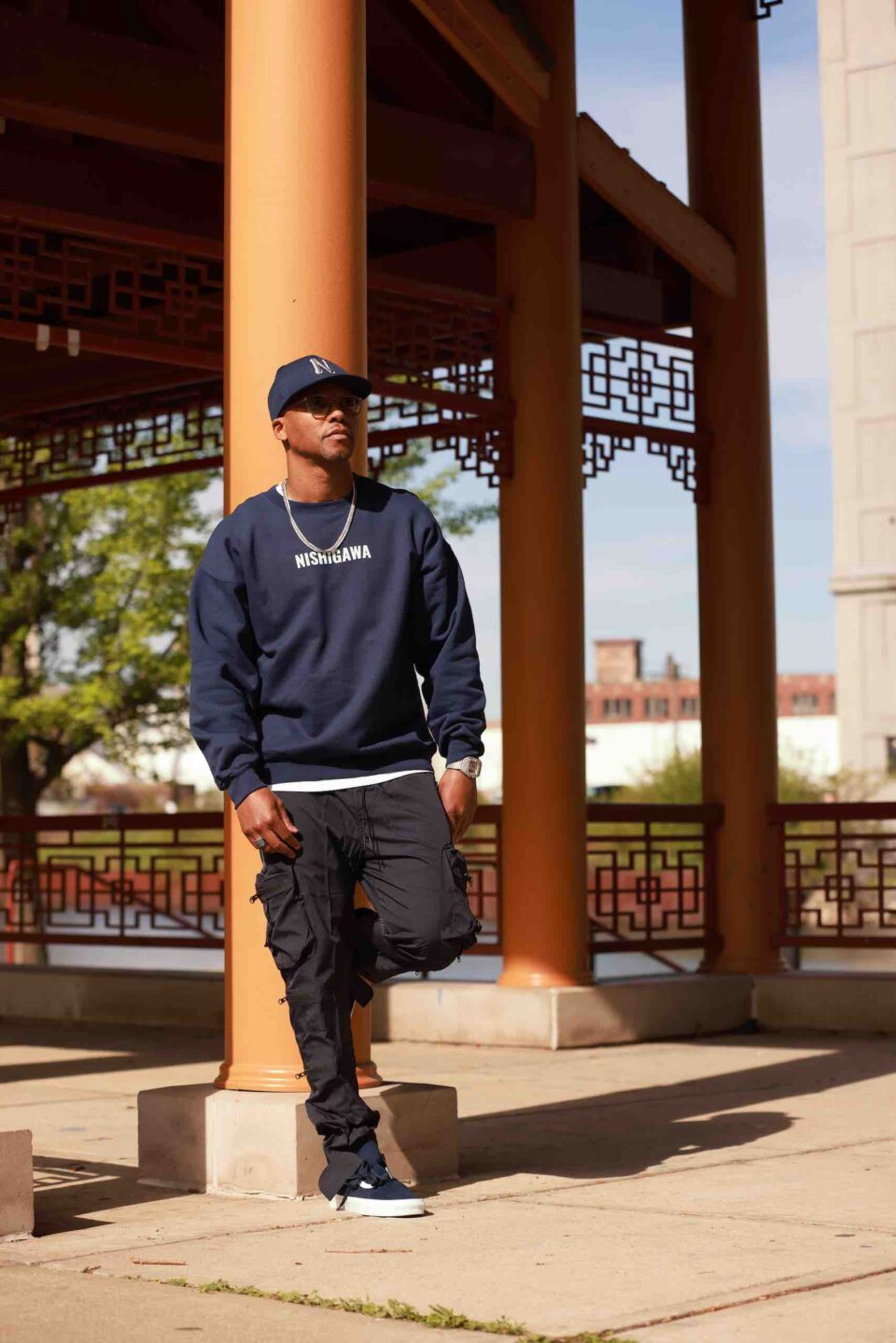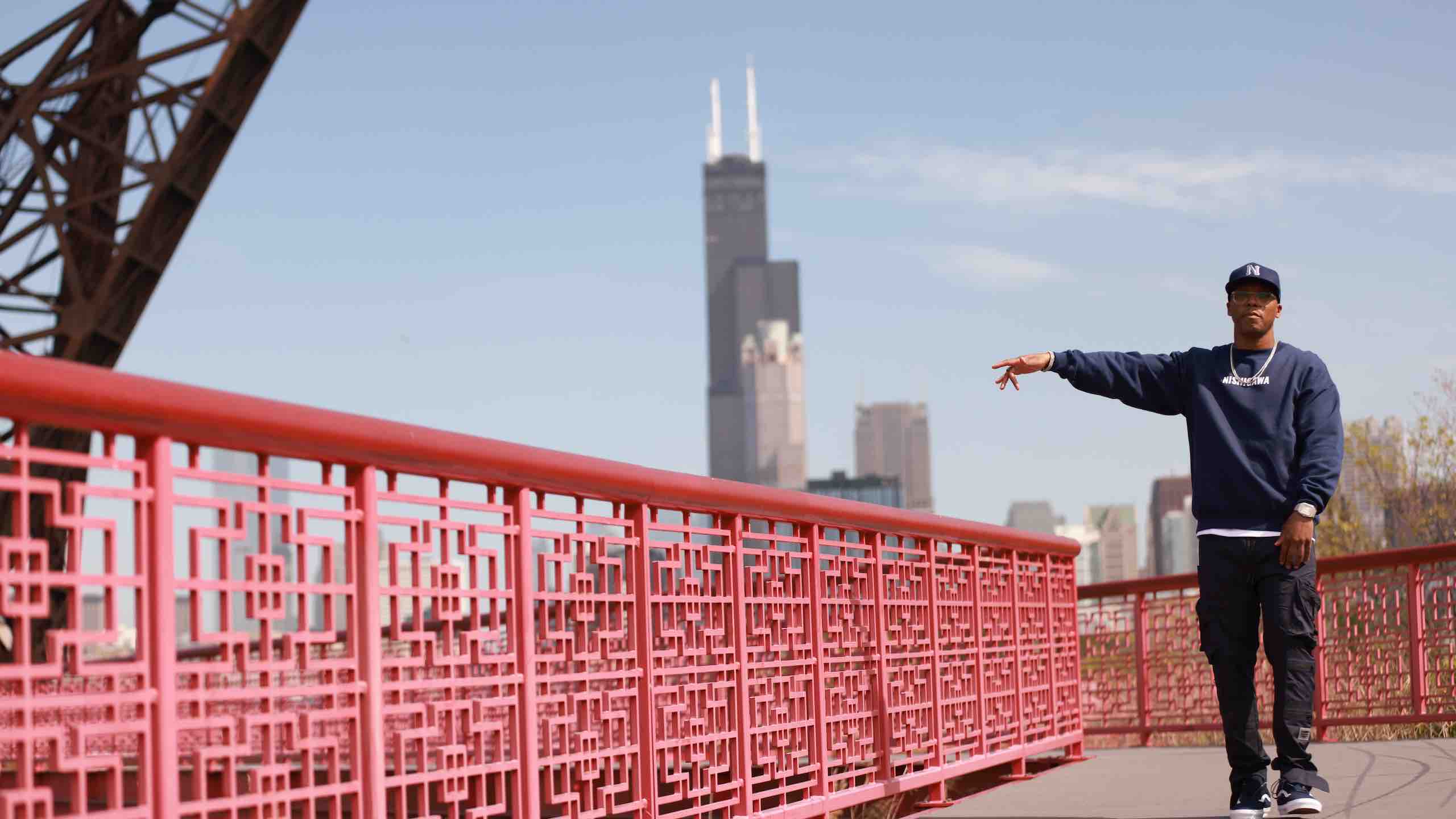Some may call Lupe Fiasco cynical or jaded about his career, but anyone levying such a charge is missing the forest for the trees. Sure, he hasn’t had a major label deal since 2017. And yeah, he has a day job outside of rap now. But these are just industry trimmings, decorations, fluff. It’s not the thing itself. In Lupe’s eyes, he got what he wanted out of rap in the early 2000s when JAY-Z gave him a co-sign. Everything else doesn’t mean shit. Lupe raps because it’s what he does. If he gets paid to do so, all the better, but the art is the art is the art.
On Samurai, Fiasco’s conceptual ode to Amy Winehouse as a samurai (seriously), he examines the life of the musician: the highs, the lows, the in-between. The mundanity that most of us don’t see makes up the majority of an artist’s life, and Samurai, as such, emerges as a tribute to the dirt and grime that too often get scrubbed out when discussing a creative entity—whether the remaining element we’re celebrating is a song, an artist, a career, or a streaming number.
Like all of Fiasco’s albums, he manages to marry these weighty concepts with deeply personal introspection, imbuing the work with the POV of one of the best bar-for-bar rappers on the planet. He lives in a fascinating liminal space where his work still matters, he’s still a widely beloved emcee, but the industry has moved on. He exists in a different universe than the rappers he calls peers, and I don’t think he’s particularly upset by it. Not happy, not sad, but content to merely exist doing what he loves. “I still perfect my craft and still give my all to my art, but as a career, that’s been over for 15 years,” he tells me.
Read on for more of our conversation about Samurai’s tight runtime, working outside of listeners’ expectations, and rapping for himself and individuals rather than a wider audience.
Both Samurai and 2022’s Drill Music in Zion feel like part of a new era for you, with these shorter records honing in on precise themes. Is that a fair characterization?
Chill, my manager, made the decision to cap Samurai at eight [songs]. I was actually gonna do more, but he guided it and thought it was solid, short, and liked the way it was built as-is. I left it for him. DMIZ was different because the brevity of that album was purely based on the time constraint. Also, Samurai is three, four years old, versus it being a new work where there were real-time thoughts.
You’ve spoken about Samurai being indebted to Amy Winehouse. Was that kernel what began the process?
Samurai started from the Amy Winehouse quote from her documentary where she left a voicemail on a producer’s phone: “I keep coming up with these battle raps, if you wanna battle me, I’ll kill you because I’m a samurai.” For me it was an epiphany moment, like Leonardo DiCaprio pointing at the TV, like, “Oh, what if Amy Winehouse was a battle rapper? What would that look like?” It initially was just “Samurai,” that one song. It then became, “How did she learn how to rap? What would the battle look like? What was she rapping about?”
Incrementally, as you flesh out the concept, a lot of questions pop up. I answer those questions with songs. It wasn’t anything more intentional than that. My process, the way I work, is gonna be layered with multiple parallels and pieces connected together regardless, so that’s par for the course. The kernel of it is still that initial thing where Amy Winehouse said she was a battle rapper. It’s like, “Alright, let’s see where that goes.”
“All of my music is my experience to a degree, but I also imagine, extrapolate, and project, pulling from other peoples’ experiences—trying to create some conceptual framework that makes sense.”
Do you feel there are parallels between your life and hers as musicians?
In a certain way, it’s not about her life. It’s more of a fantasy. We never met. I’m not trying to write her biography or reposition her in any way, I’m not trying to rewrite her history. If I never told you that it was about Amy Winehouse, it could be about anybody. It’s that vague. That was the point. I don’t want to use her legacy to put this album out.
It’s more about it feeling like dope permission to follow that up, because I would want to hear what her battle raps sound like. I’m a fan of her music, a fan of her writing, a fan of everything else. The stories that are in it and the places that it goes are the life of any artist—the trials and tribulations, the ups and downs. All of my music is my experience to a degree, but I also imagine, extrapolate, and project, pulling from other peoples’ experiences—trying to create some conceptual framework that makes sense.
On “Cake,” I feel like you’re really trying to rap your ass off and take us inside the mind of a writer. Do you still have that urge to prove yourself as a lyricist?
It’s actually a little dumbed down because it’s not necessarily meant to be me, to be “Lupe.” It’s meant to be the battle rapper and their particular style and skillset. I’m not trying to make a point about my rapping, but that’s what I do. If you don’t know that already, you will, and if you did know, you might have forgotten.

“In terms of chasing things or getting accepted, my career has been over. It’s almost like this is the ghost. I’m not even really here. I have a regular nine to five. Rap is literally on the weekends.”
I was reading an interview with you from two years ago where you said: “You make one mistake, and they’re throwing out—not just the painting, the whole fucking studio. Your career is over. That happened to me.” These last few years feel like a bit of a resurgence for you. Do you still feel like your career is over?
I’m out. I’m over. Lupe’s been over since Lasers, really. I was operating either off of having to complete a contract with Atlantic, or doing something to keep the lights on, or just having an idea that’s dope where it’s like, “Why not?” In terms of chasing things or getting accepted, my career has been over. It’s almost like this is the ghost. I’m not even really here. I have a regular nine to five. Rap is literally on the weekends. Because that’s the case, I don’t really think about it too deeply. I still perfect my craft and still give my all to my art, but as a career, that’s been over for 15 years.
It’s funny to hear that perspective with the level of success you’ve achieved. I was at your sold-out The Cool 15th anniversary show in Central Park. That was last year!
I don’t want to speak from privilege, but I also can’t minimize my experience. There are people with regular jobs who do crazy shit on the side. They might have Guinness World Records, but they work at Walmart. They’re just really good at a particular thing. They might turn a coin on it or not. Fortunately, for my team and I, we’ve been able to just ride regardless, through sheer force of will and putting out good music that people enjoy. When you compare my career to the music business, or what’s expected from people of my caliber, it’s nowhere near them, because we’re out. You make a mistake or you do something and people move on. You think it’s gonna go for just a season, but it lasts 20 years.

Lupe Fiasco @ Riot Fest 2021 / photo by Timothy Hiatt
How difficult was it when you first had that realization? You’ve been a professional rapper since you were, like, 17 years old.
I didn’t really care, because I’ve never cared about money or the music business. I got everything I wanted out of rap when I was 19 or 20. JAY-Z was like, “Yo, you’re nice.” I was done. It’s hard for people to believe, but I was satisfied with everything I put into it at that point. Everything else became, “OK, let’s see if we can do a Platinum album.” It didn’t matter if we achieved it or not, we just had to fill in the gaps and fill in the time. It sounds wild, but that’s the truth.
It changes the context to the end of The Cool, when you talk about just one more album to go. It felt like you were fulfilling contractual obligations so you could pursue the artform from a place in which you were comfortable.
There are a lot of rappers that don’t like the music business. They don’t like touring—I hate doing interviews [laughs]. Being a rapper has many pieces and parts. I really enjoy the art of rapping, but I could care less if we sell records. People are like, “Yo, if I had your slot I would do everything, you’re not really taking full advantage of your opportunity.” It’s like, once you do it, you realize what it really is. Looking at it from the outside is different from looking at it from the inside. It’s been completely fulfilling and everything else is downhill from here. Let me get off while the high is still high.
The one thing I’ve always done is make sure that my fans have more music than they ever could pay for. I’m not interested in what others want me to be, which goes back to the themes of Samurai. I’m not interested in what the fanbase wants me to be. Those things I’ve already done. You want me to do it again? It’s different when you’re in it. When you’re out, the sky’s the limit.
“I got everything I wanted out of rap when I was 19 or 20. JAY-Z was like, ‘Yo, you’re nice.’ I was done.”

Why does the urge still emerge to write albums as opposed to writing and recording in your bedroom, for yourself?
I do that too! Most of my work is private. This portrait of Amy Winehouse as Samurai is public, but I write portraits for other people, where I only have five or six people who have access to it. The reason it lands back musically with Samurai, where there are themes about the artistic career, is because it’s a portrait of Amy Winehouse, a musician wanting to do another kind of music. It isn’t Drogas Wave, which is about slaves under the sea. Samurai has musical themes woven throughout. To tell that story, specifically being a battle rapper, it’s gonna talk about those spaces.
It’s all different exercises of rap for you. Does varying your narrative approaches keep you excited
It’s disjointed, so not really. Samurai was done before DMIZ. There are projects that exist in different temporal spaces. It’s not just a trajectory where you see me completing missions like a video game. It’s very open-world, where I’m over here playing with something, then move somewhere else, then come back to the first thing. The thing I started last may be the thing that comes out first. I wouldn’t put too much weight into the chronology of the work. FL







